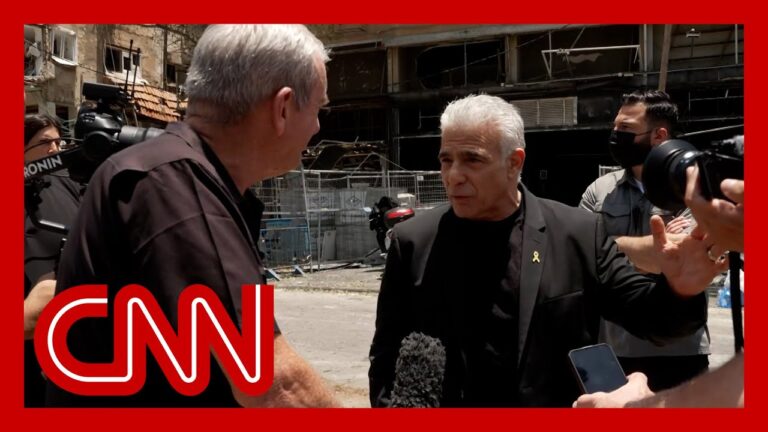Video at the bottom!
In Tel Aviv, Nic Robertson reports live from the aftermath of an Iranian missile strike where a significant impact crater has marred the landscape. He describes the damage, highlighting ripped-up streets and the destruction of nearby apartment buildings. Fortunately, many residents had evacuated to shelters before the missile struck, but the severity of the impact is evident, with shattered glass and blown-out windows now being boarded up.
Robertson shares a poignant account from the leader of the Israeli opposition, who visited the site to check on his son’s apartment. He learned that had they been inside during the strike, the outcome might have been tragic, especially for his granddaughter, whose bed was covered in glass.
The conversation shifts to Israel’s strategic goals, emphasizing the necessity to dismantle Iran’s nuclear capabilities. The potential for prolonged conflict looms large as Israeli officials underscore their commitment to neutralizing what they perceive as an existential threat. They argue that Iran’s missile arsenal poses a significant risk, and the comments indicate a clear urgency for action.
In Washington, political analysts discuss President Trump’s approach to the escalating conflict. While he seeks to avoid direct U.S. military involvement, the administration is providing defensive support to Israel. Trump seems to maintain a stance favoring diplomatic solutions, despite the precarious nature of the situation. The complexities of engaging militarily while avoiding a larger conflict are apparent, as officials grapple with potential retaliatory actions from Iran.
Overall, the situation remains fluid, with both Israeli and U.S. leadership weighing their options in light of the threat posed by Iran and the broader implications for regional stability. The call for U.S. collaboration remains a critical point of discussion, reflecting the tightrope both countries must walk in navigating this volatile landscape.


